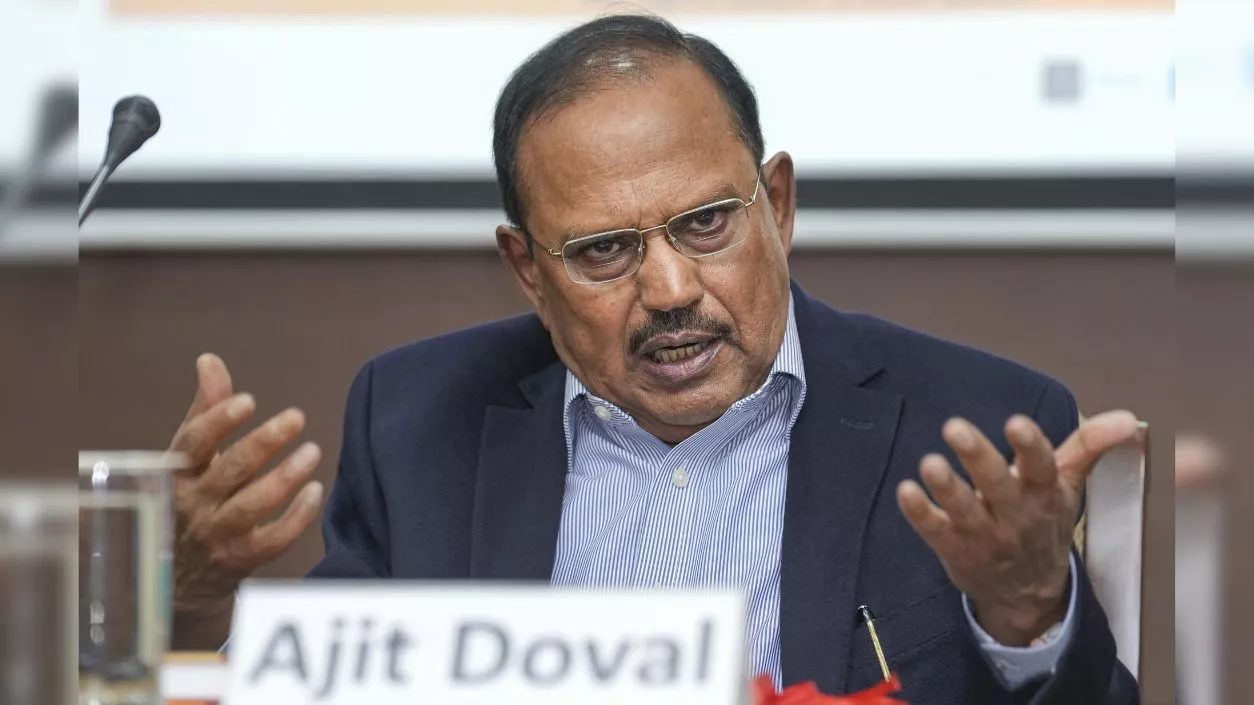.gif)
.gif)

India's National Security Adviser (NSA) Ajit Doval is set to visit China in the coming weeks to continue discussions aimed at resolving the long-standing border dispute between the two nations. The visit follows the successful disengagement of troops at the sensitive friction points of Demchok and Depsang along the Line of Actual Control (LAC). The disengagement, which took place on October 21, 2023, is a significant step in reducing military tensions and follows months of negotiations and military standoffs between the two countries.
Doval's visit is likely to occur by the end of 2023 or in early January 2024. The visit will be part of the ongoing talks under the Special Representatives mechanism, which was established in 2003 to find a framework for resolving the boundary issue between India and China. The mechanism has facilitated 22 rounds of talks, with the last round occurring in 2019. During these talks, discussions have typically focused on de-escalation and finding peaceful solutions to the disputed areas along the border. Doval’s Chinese counterpart in these talks will be Foreign Minister Wang Yi.
The Special Representatives mechanism has played a key role in managing tensions, particularly during the 2020 standoff between India and China, which was marked by a deadly clash in Galwan Valley. The clash, which resulted in the deaths of 20 Indian soldiers and at least four Chinese soldiers, brought bilateral relations to their lowest point in decades. In response to the escalation, the Special Representatives mechanism was reactivated to facilitate de-escalation efforts, and the disengagement at Demchok and Depsang was one such outcome.
The September 2023 meeting between Doval and Wang Yi in St. Petersburg, Russia, played a pivotal role in finalizing the disengagement framework for these two sensitive regions. The two officials agreed on the withdrawal of troops from these locations as part of an effort to ease tensions. Following this agreement, Indian Prime Minister Narendra Modi and Chinese President Xi Jinping also discussed the border issue during the BRICS Summit in Kazan, Russia, in October 2023, where they agreed to continue efforts to normalize bilateral relations through dialogue mechanisms like the Special Representatives talks.
In addition to the Special Representatives mechanism, high-level meetings have taken place between Indian and Chinese officials to reinforce the commitment to peace and stability along the border. India's External Affairs Minister S. Jaishankar and Chinese Foreign Minister Wang Yi held discussions during the G20 Summit in Rio de Janeiro in November 2023. Indian Defense Minister Rajnath Singh and Chinese Defense Minister Li Shangfu also met on the sidelines of the ASEAN Defense Ministers-Plus meeting in Vientiane, Laos, in November 2023. These engagements reflect both countries' interest in restoring stability along the LAC and avoiding further conflict.
On December 5, 2023, the Working Mechanism for Consultation and Coordination (WMCC) on India-China border affairs held a meeting in New Delhi to discuss maintaining peace and tranquility along the border. The WMCC, which includes representatives from both governments, has been instrumental in ensuring that agreements made during previous rounds of talks are adhered to, and in coordinating efforts to prevent any flare-ups in tensions. The meeting further affirmed both countries' commitment to resolving differences through dialogue and in accordance with previous bilateral agreements.
The Special Representatives mechanism remains a cornerstone of India-China diplomatic efforts to address the border dispute. In addition to talks on troop disengagement, discussions have focused on the establishment of Confidence-Building Measures (CBMs) and protocols to manage the situation along the LAC. Both countries have emphasized the importance of mutual respect for each other's territorial integrity and have expressed a shared interest in maintaining regional stability.